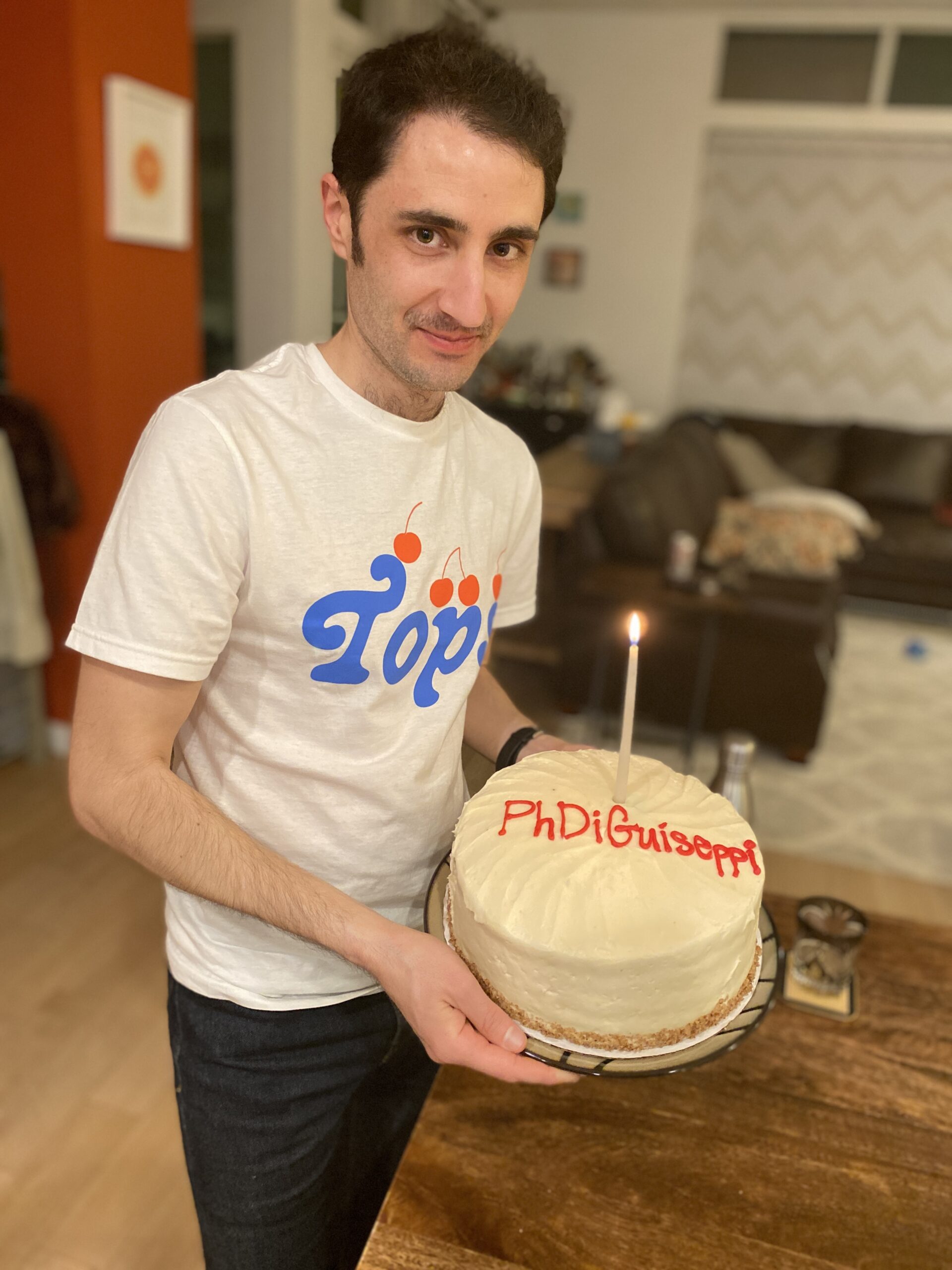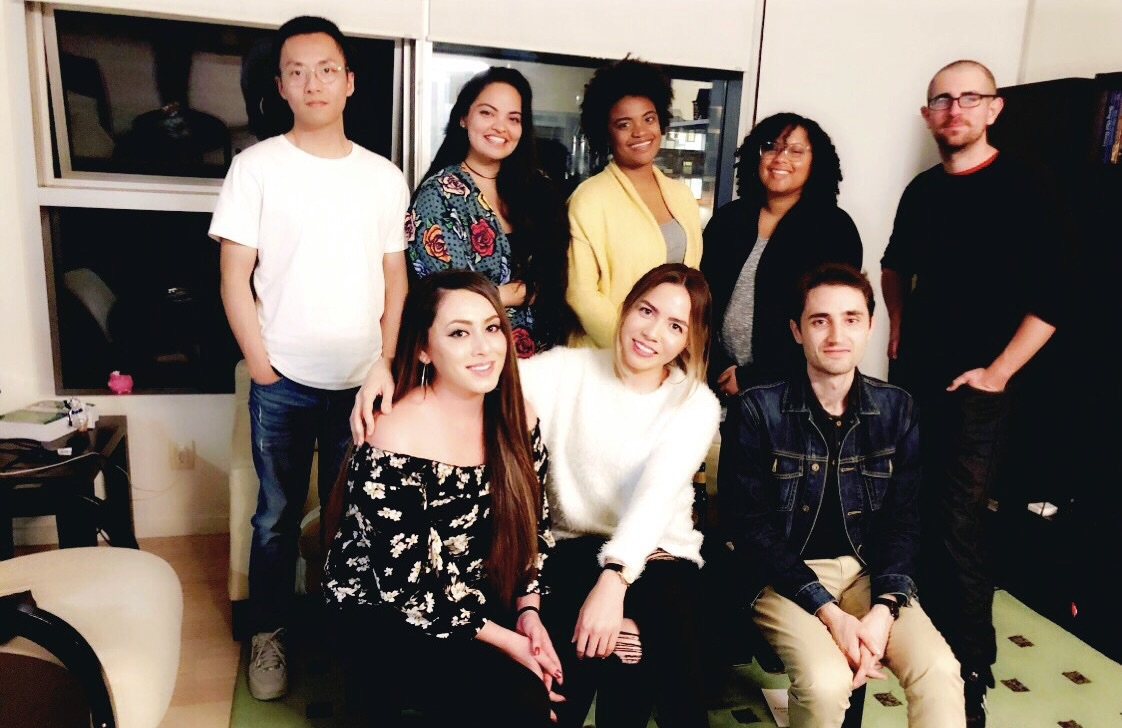
In honor of graduation day, we have one more post celebrating our 2023 graduates. We talked to our student leader Graham DiGuiseppi about his years at USC, his involvement in CAIS, and his next steps. Dr. DiGuiseppi’s research interests are in preventing and treating substance use disorders, mindfulness interventions, and health promotion in high-risk social networks. Continue reading to learn more about his amazing story!
Tell us a little about yourself.
I am a PhD candidate at the USC Suzanne Dworak-Peck School of Social Work, and a student leader at CAIS. I just recently defended my dissertation, so I suppose I can put “Dr.” in front of my name now too, which feels weird.
What factors influenced your decision to pursue your PhD at USC?
The School of Social Work at USC was the perfect place for me to pursue my doctoral studies. I knew I wanted to learn advanced analytic methods to understand prevention and treatment of substance use disorders among vulnerable youth, and USC provided opportunities to do that. What drew me to USC the most though, was the chance to work with my mentors at the school of social work. Dr. Jordan Davis and Eric Rice were doing really interesting work, and I was able to learn and receive mentorship from both of them.
What were some of your highlights at USC?
It is hard to say because I have had so many great experiences at USC. One of the most exciting moments was when I learned that my dissertation research was going to be funded by the National Institute on Drug Abuse. It was gratifying to know that my research was valued, and the grant helped me advance my research training and work directly with community members. The chance to meet and work with youth experiencing homelessness in Los Angeles, as well as service providers and advocates from a variety of local organizations, was so eye-opening. I also have to mention that the relationships I developed with faculty and other students at USC changed my life. I am so lucky to have met so many extraordinary people doing amazing things.
Tell us about why you decided to get involved in CAIS.
I mainly got involved in CAIS through work with my advisors, Eric Rice and Jordan Davis. My first intro to CAIS was through assisting Dr. Rice with data analysis for Have You Heard?, a study evaluating the use of an AI “influence maximization” algorithm to select peer leaders who could talk about HIV prevention with members of their social networks. Our study found that the AI algorithm used to select peer leaders led to a greater reduction in behaviors that put youth at risk for HIV, and increased knowledge about HIV, when compared to comparison groups. At CAIS, I continued collaborating on work on a variety of other topics, including using machine learning to better understand the effectiveness of substance use treatment. Eventually, with the support of Dr. Davis and John Prindle, I applied machine learning in my own dissertation to understand who may be at greater risk of experiencing homelessness upon entering treatment.

How did your experience at CAIS contribute to making your time at USC memorable?
CAIS showed me the value of true interdisciplinary work, and facilitated relationships with students and faculty at the Viterbi School of Engineering that I would not have without it. CAIS showed me that it’s important to make connections outside of your own school or department. Every discipline has their own language and unique way of understanding things, but I realized when you come together to work on problems, there is a lot we can learn from each other, which often leads to better outcomes. Most recently, I worked with others on the organizing committee for ShowCAIS – this brought together people from across schools at USC who are doing exciting work using AI for social good. Being on an organizing committee for a conference may not sound too exciting, but it was a great learning experience and is crucial for events like this to happen.
Tell us about your plans for the future.
I am starting a position as a Behavioral / Social Scientist at RAND Corporation this summer. I’m very excited for this, because like CAIS, RAND is interdisciplinary and uses applied research to inform public policy. I plan to continue doing research to improve the health and wellbeing of vulnerable and marginalized youth.
What advice would you offer to someone considering pursuing a PhD in social work?
Getting a PhD in social work is a great opportunity to make an impact on society. There is no shortage of problems to solve, and we need solutions that are based on evidence. Getting a PhD is a long-term commitment though, and is sort of like “running a marathon, not a sprint.” I would say think about what your goals are for your life and career, and what kind of work you enjoy spending your time doing. If a PhD in Social Work helps you get there, then go for it.



